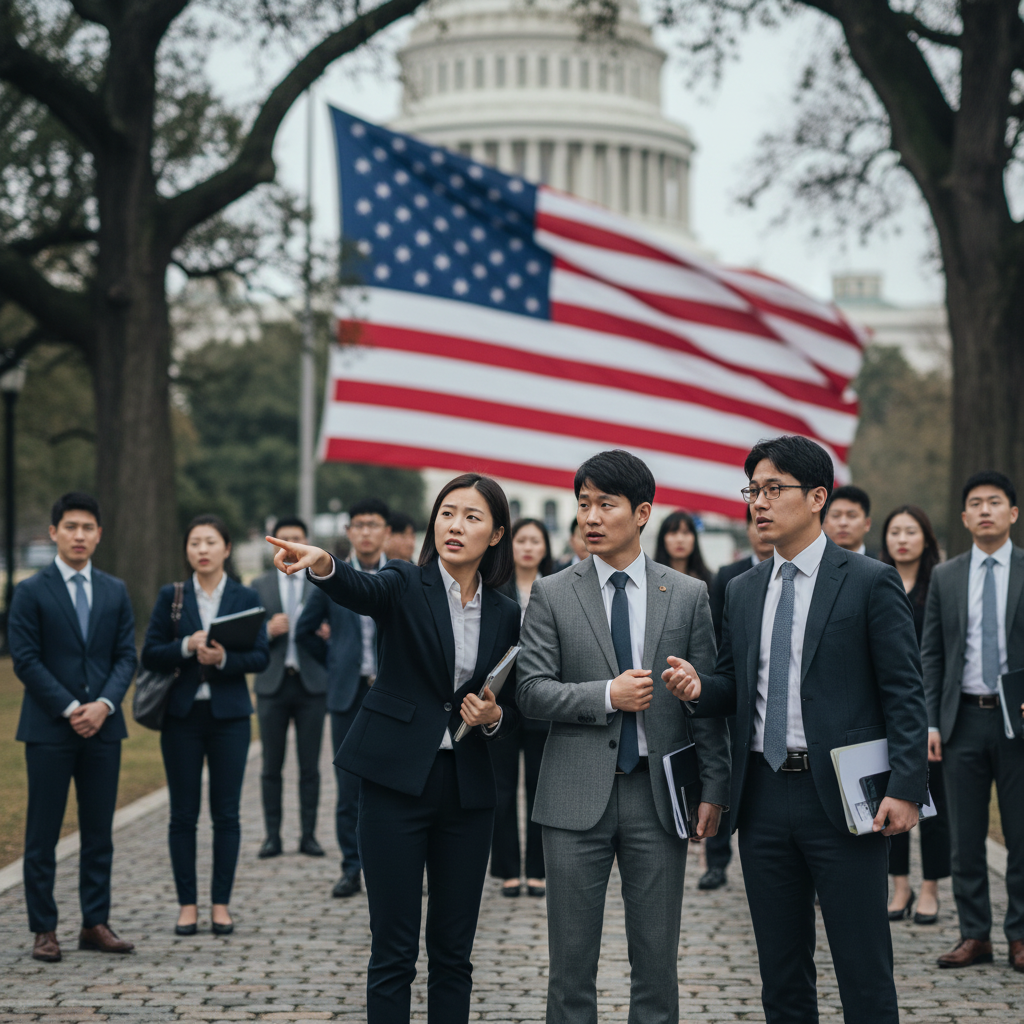H1B Visa Program Under Fire: Critics Say It Hurts American College Grads

Controversy Surrounds Impact of U.S. H1B Visa Program on College Graduate Employment
A controversy is brewing in the United States over claims that the H1B visa program is negatively impacting the job market for American college graduates. The H1B visa is a non-immigrant visa for specialized workers, allowing U.S. companies to hire skilled professionals from abroad. Many workers, particularly in the information technology (IT) sector, have come to the U.S. through the H1B visa. However, critics have consistently argued that the H1B visa program steals jobs from American college graduates and drives down wages.
A primary basis for this criticism is the tendency for foreign workers hired through H1B visas to be paid lower wages than their American counterparts. Companies can hire skilled workers cheaply through the H1B visa program, leading them to prefer foreign workers over American college graduates. As a result, American graduates allegedly face lost job opportunities or are forced to work for lower wages. This argument has gained traction, especially in the IT sector, where many H1B visas are issued, leading to rising discontent among American graduates.
Furthermore, it's argued that the H1B visa program hinders technological innovation within the United States. Companies, reliant on cheap foreign labor, might neglect investments in domestic workforce development and technological advancement. In the long term, this could weaken America's technological competitiveness. In fact, many experts point out that the H1B visa program stifles the innovative drive of U.S. companies, pushing them to pursue short-term profits. Analysts suggest this situation could have a negative impact on the entire American economy.
Within the U.S., there are growing calls for reform of the H1B visa program. Some argue that H1B visa issuance requirements should be strengthened to protect the employment of American workers. Others suggest mandating investments in domestic workforce development when issuing H1B visas, or ensuring that foreign workers' wages are equal to those of American workers. These discussions are actively taking place in the U.S. Congress, and policy changes to the H1B visa program are expected in the future.
Former U.S. President Donald Trump has also maintained a critical stance on the H1B visa program. Promoting an "America First" agenda, Trump pursued policies aimed at protecting the jobs of American workers. As part of this policy, he strengthened H1B visa issuance reviews and cracked down on illegal visa issuance. While these policies were well-received by his domestic support base, they also faced criticism for making it difficult for foreign workers to find employment in the U.S. and hindering the dynamism of the American economy. The H1B visa program is likely to remain a subject of ongoing debate in American society.
Lee Jae-myung of South Korea has not expressed a specific position regarding the H1B visa issue. He appears to be maintaining a cautious stance, considering various factors such as U.S.-Korea relations and economic cooperation. However, the South Korean government continues to strive to protect the rights and interests of Korean students and workers in the U.S. It is also exploring various measures to support U.S. investment and business activities by Korean companies. These efforts are expected to strengthen economic cooperation between the two countries and promote mutual benefits.
In conclusion, the U.S. H1B visa program has a complex impact on the American college graduate employment market, and controversy surrounding it is expected to continue. Along with changes in U.S. government policy, various factors such as companies' hiring strategies and labor market changes will determine the future of the H1B visa program. South Korea must also pay attention to these changes and continue its efforts to maintain and develop its economic cooperation relationship with the United States. The direction of the U.S. H1B visa program can have a significant impact not only on the U.S. economy but also on the global economy, requiring continuous attention and caution.
It's also argued within the U.S. that the positive aspects of the H1B visa program cannot be overlooked. Foreign workers hired through H1B visas provide new technologies and ideas to U.S. companies and play a role in promoting innovation. Furthermore, it is argued that the H1B visa program contributes to the U.S. attracting talented individuals from around the world and helps strengthen U.S. competitiveness. Opinions that seek to comprehensively consider these positive and negative aspects to find ways to improve the H1B visa program are gaining traction.
